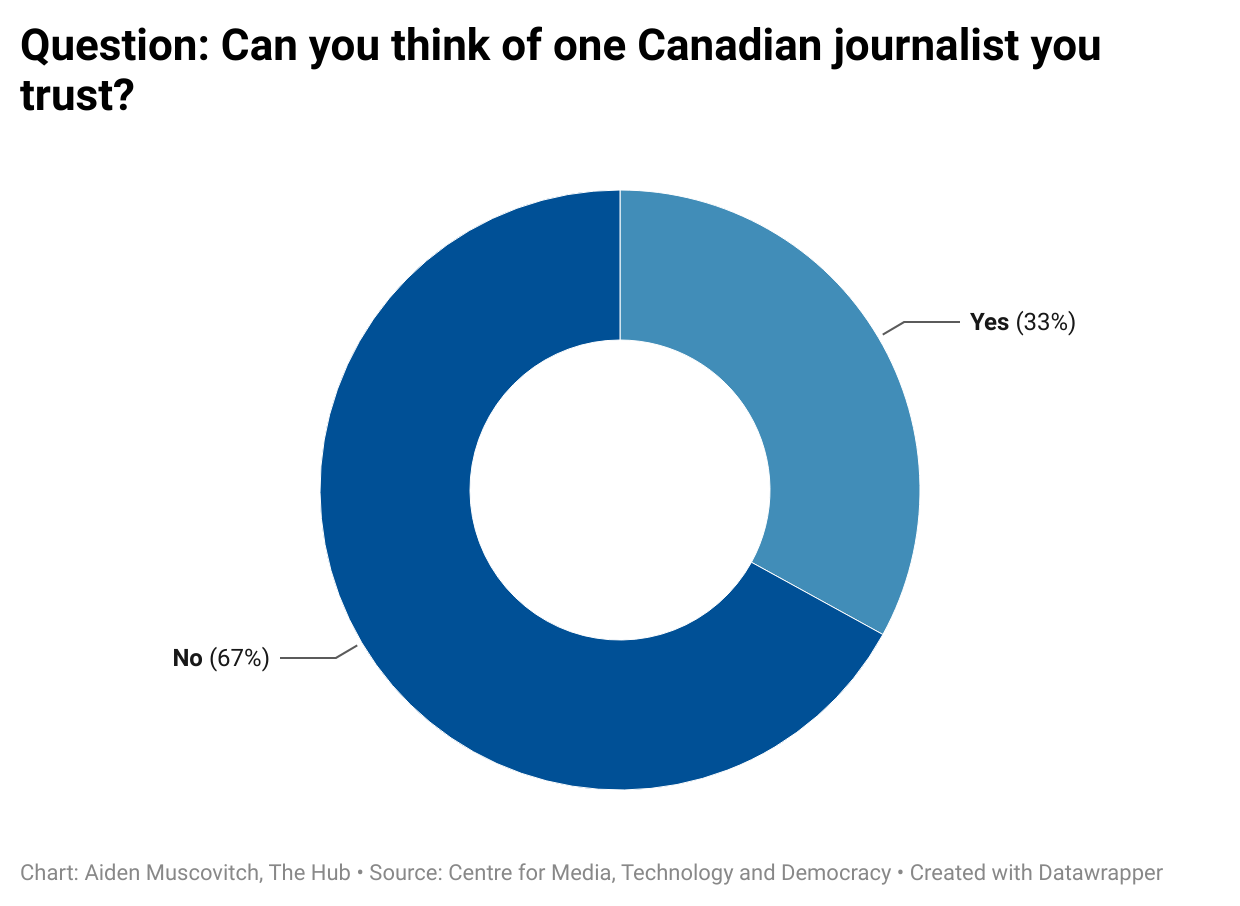This is The Week in Polling, your Saturday dose of interesting numbers from top pollsters in Canada and around the world, curated by The Hub. Here’s what we’re looking at this week.
Two-thirds of Canadians are unable to name a Canadian journalist they trust
Global trust in media has reached a record low of 40 percent. This country is no exception, with 67 percent of Canadians unable to name a single Canadian journalist they find trustworthy.
Among the remaining 33 percent, the most trusted Canadian journalists were from mainstream outlets, such as Radio-Canada and CTV, or were journalists who had retired or stepped away from the news business. For instance, trust was often extended to figures like Peter Mansbridge, the retired national news anchor for the CBC.
Speaking of Mansbridge’s former employer, the CBC is facing its first formal mandate review since the 1990s. Several calls have been made, including from Pierre Poilievre, the leader of the Conservative party, to defund the national public broadcaster, and perhaps even dismantle it. However, the vast majority of Canadians, 78 percent, would like to see the CBC continue production as long as it addresses some of its major criticisms.
According to about 30 percent of Canadians, some pressing issues plaguing the CBC begging for correction include biased reporting, being too woke, and telling people what to think. This week, The Hub‘s managing editor Harrison Lowman was asked to appear on CBC Radio to explain why so many conservatives have switched off the national broadcaster.










